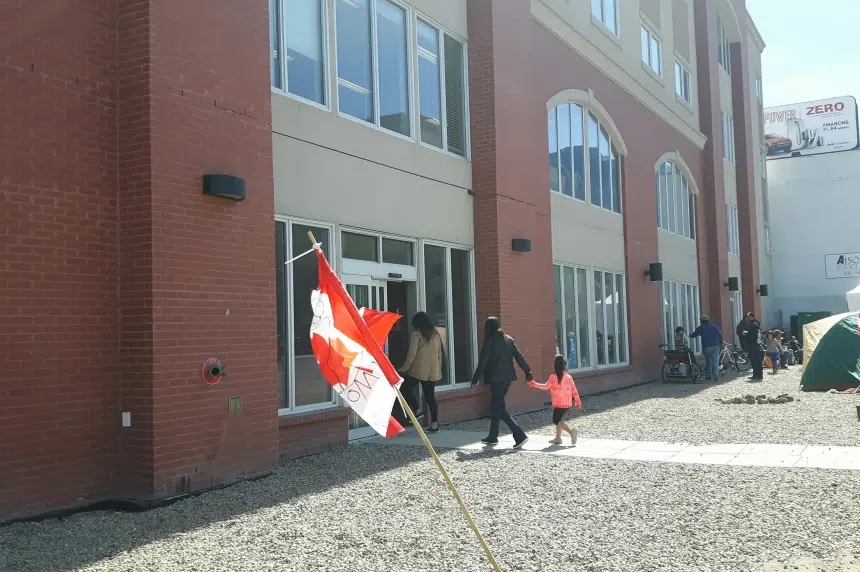Protesters camping outside the Indigenous and Northern Affairs Canada (INAC) office marked a small victory Thursday as the doors opened to the public for the first time in nearly two weeks.
“We have met with INAC, we had the first of hopefully many meetings to come on Tuesday where we asked that they re-open their doors, that they start serving the public that they are paid to serve,” said Robin Pitawanakwat, who organized the original protest.
When the doors were unlocked on Thursday, she said the move signaled that the federal department is willing to listen to the concerns of the people. The camp sprang up on April 18 in solidarity with #OccupyINAC protests in other cities to address mental health services on remote reserves like Attawapiskat.
The core group at the “Colonialism No More – Solidarity Camp” is also calling on the government to provide more than ‘band-aid’ solutions to issues like inadequate, overcrowded housing and clean drinking water on reserves across Saskatchewan.
A man who goes by the name of Red has been camping outside the building since the very beginning and he plans to stay there to continue raising awareness about First Nations issues.
“To create a necessary dialogue between us and regular Joe Canadian,” he said, as someone honked their horn in support while driving past. “Rather than politicians and politicians meeting like they did in Fort Qu’Appelle the other day, we need a dialogue between the people because that’s where it counts and where it matters.”
Red said the public is often quick to take offense to First Nations protests without having a real understanding of the issues they face.
“Our financing or how we use our money, you know – everybody takes offense to it but never really tries to come to comprehend the real issues that we’re confronted with like how we’re shackled by the Indian Act and the Indian Act government is really destructive,” Red explained.
He described suicide and drug and alcohol addiction as the “sister issues” of poverty for First Nations people living on reserves and in cities.
The small group of protesters say they are getting positive reaction from the public with people dropping off donations of food. The Canadian Union of Public Employees (CUPE) is also lending visible support to the camp with a rented white tent for food and shelter.











